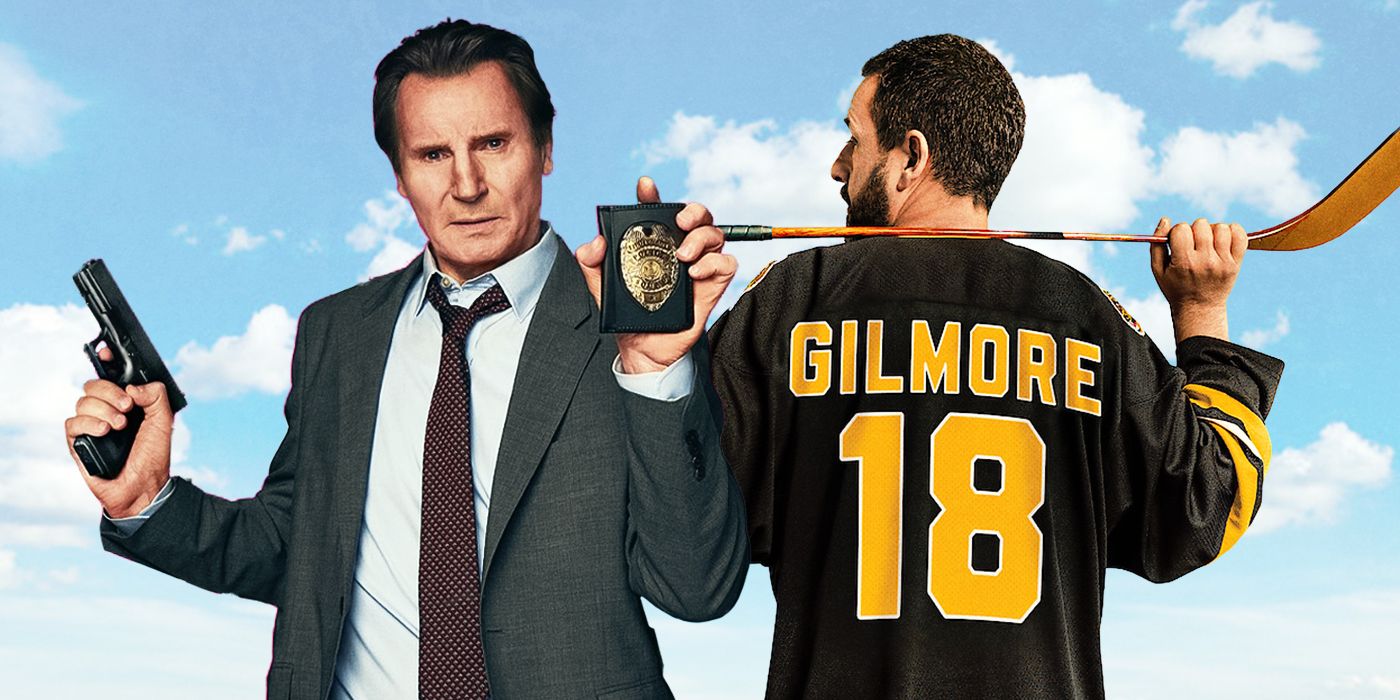For years, movie studios have been terrified of ever going near theatrical comedies again. While superhero films, horror and indie dramas have continued to dominate box offices, streaming charts and audience conversation, classic laugh-out-loud comedies slowly faded away from the big screen. Instead, they were redirected to streaming platforms, released with little fanfare, or quietly canceled altogether. Comedies weren’t the same anymore, mostly due to the financial risk of it all. Audiences now had instant comedic videos and social trends at the touch of an app. It was a frustrating shift for comedy fans, not because comedy was gone, but because it was suddenly deemed unfit for the theater experience. However, two major reboots are turning that narrative on its head. Happy Gilmore 2 and The Naked Gun are proving that audiences are more than ready to laugh together again at the movies.
Neither movie was really asked for by audiences, with fans of both respective franchises considering them to be untouchable. However, these films managed to beat the odds and revitalize what was once thought to be long gone. Happy Gilmore 2, starring Adam Sandler reprising one of his most iconic roles, has reignited excitement in his classic style of comedies. At the same time, The Naked Gun reboot, with Liam Neeson taking over the deadpan detective role made famous by Leslie Nielsen, is showing that audiences are more than willing to enjoy a comedy so silly, its main focus is slapstick absurdity. The success of both properties represents more than just a wave of 1980s and 1990s reboots, but almost an official end to the long-dormant trend that the idea of comedies can’t succeed in theaters anymore.
Happy Gilmore Returns to the Green
Despite the Odds, Sandler and Netflix Brought Happy Gilmore Back to Success
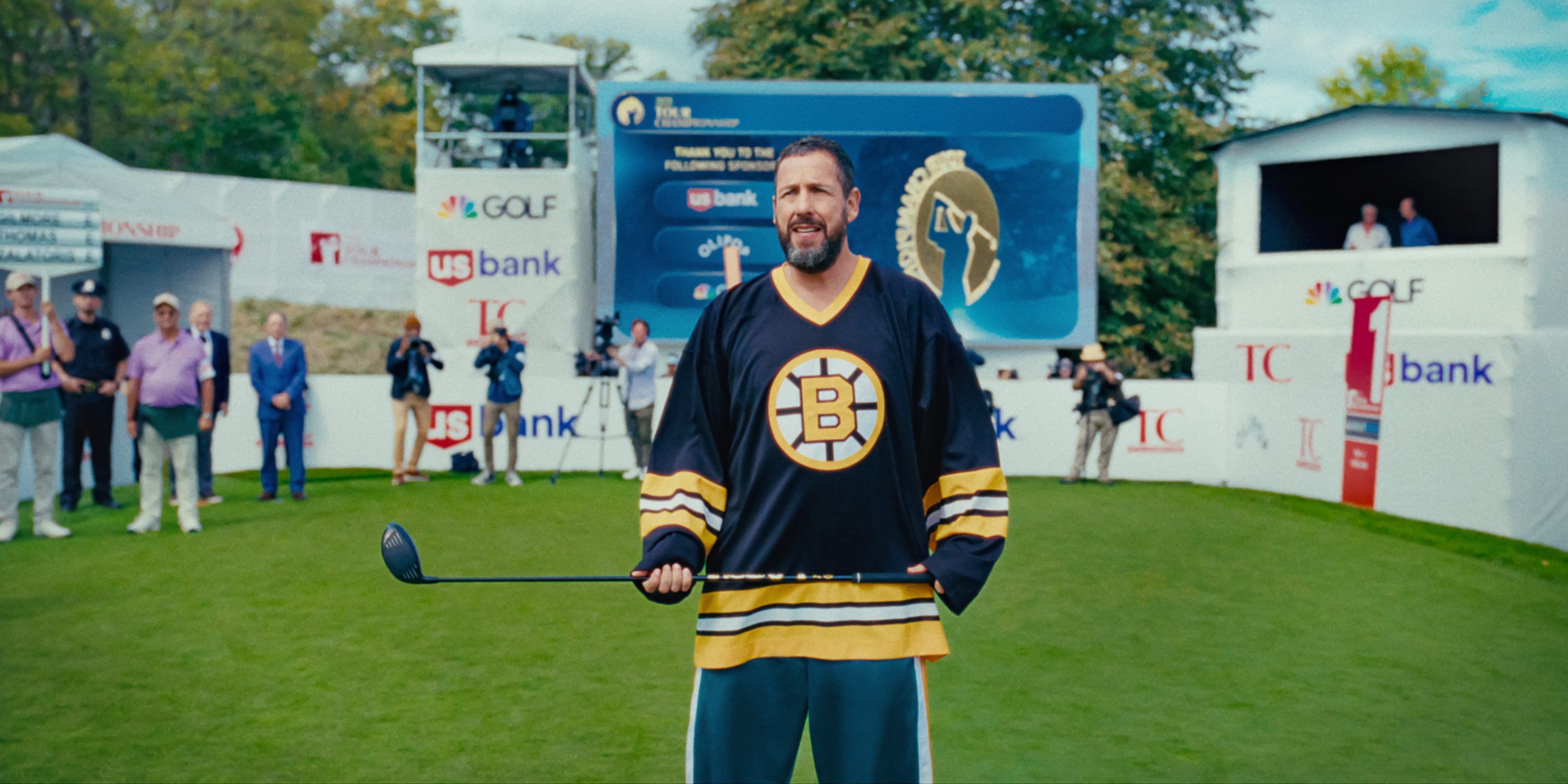
Image via Netflix
The announcement of Happy Gilmore 2 hit the internet like a well-aimed golf ball to the face in the best way possible. Fans have long clamored for a sequel to Sandler’s 1996 cult classic, and when Netflix officially confirmed that the follow-up was in production, social media erupted with excitement. Soon after, reports revealed that Christopher McDonald was returning as Shooter McGavin and that production was underway with Sandler fully embracing the return of his short-tempered, hockey-loving golf prodigy.
The hype was instantaneous, not just for the character, but for the type of movie itself. Happy Gilmore 2 brings back the kind of outrageous, quotable comedy that dominated the box office in the 1990s and early 2000s, which made Sandler so popular in the first place. It’s brash, it’s goofy, and it doesn’t pretend to be anything other than an excuse to have fun. This kind of movie is something that audiences have been vastly interested in for the last few years. The demand for more theatrical comedies isn’t just nostalgia-fueled, but a reaction to years of underwhelming output from studios that moved comedy to streaming platforms with little marketing or creative risk.
Happy Gilmore 2 is proving that those audiences never left when it comes to comedies. The kind of comedy film that started to pollute the market felt lazier and stereotypical. Audiences moved away from the lack of creativity in these movies, not the entire genre. With that said, it didn’t take a lot to look for the kind of comedies audiences did want to see. Many great, classically made comedy films would pop up in theaters and on streaming, unfortunately, with very little fanfare. Movies like Booksmart, Barb and Star Go to Vista Del Mar, Girls Trip, Ricky Stanicky and more have all been appreciated by audiences, but went largely under the radar. Most of this is due to the fact that other major films were coming out at the same time, making it harder for audiences to pay attention to the smaller comedies.
At the end of the day, it’s truly a fun and exciting wonder that a comedy classic like Happy Gilmore was not only able to get a sequel, but one that old and new fans alike could appreciate and enjoy. Happy Gilmore 2 is such a risky idea, possibly ruining the original film for audiences, but it managed to create its own distinct legacy outside of the original movie. Netflix reports that Happy Gilmore 2 is one of the biggest films on the platform at the moment, making some audiences question why the film went directly to streaming at all.
Netflix’s streaming-first mindset is nothing new for the company, but it’s starting to become glaringly obvious how much money the service is missing out on by not letting its films go for a proper theatrical run. The ability and interest are there; Netflix just has to trust in itself and the comedy they’ve dedicated their time to. If any comedy could become a box office success in 2025, it could have been Happy Gilmore 2.
Liam Neeson Takes Over For Leslie Nielsen
Somehow, the Lonely Island and Liam Neeson Successfully Team-Up to Risk Rebooting an Incredible Comedy Series
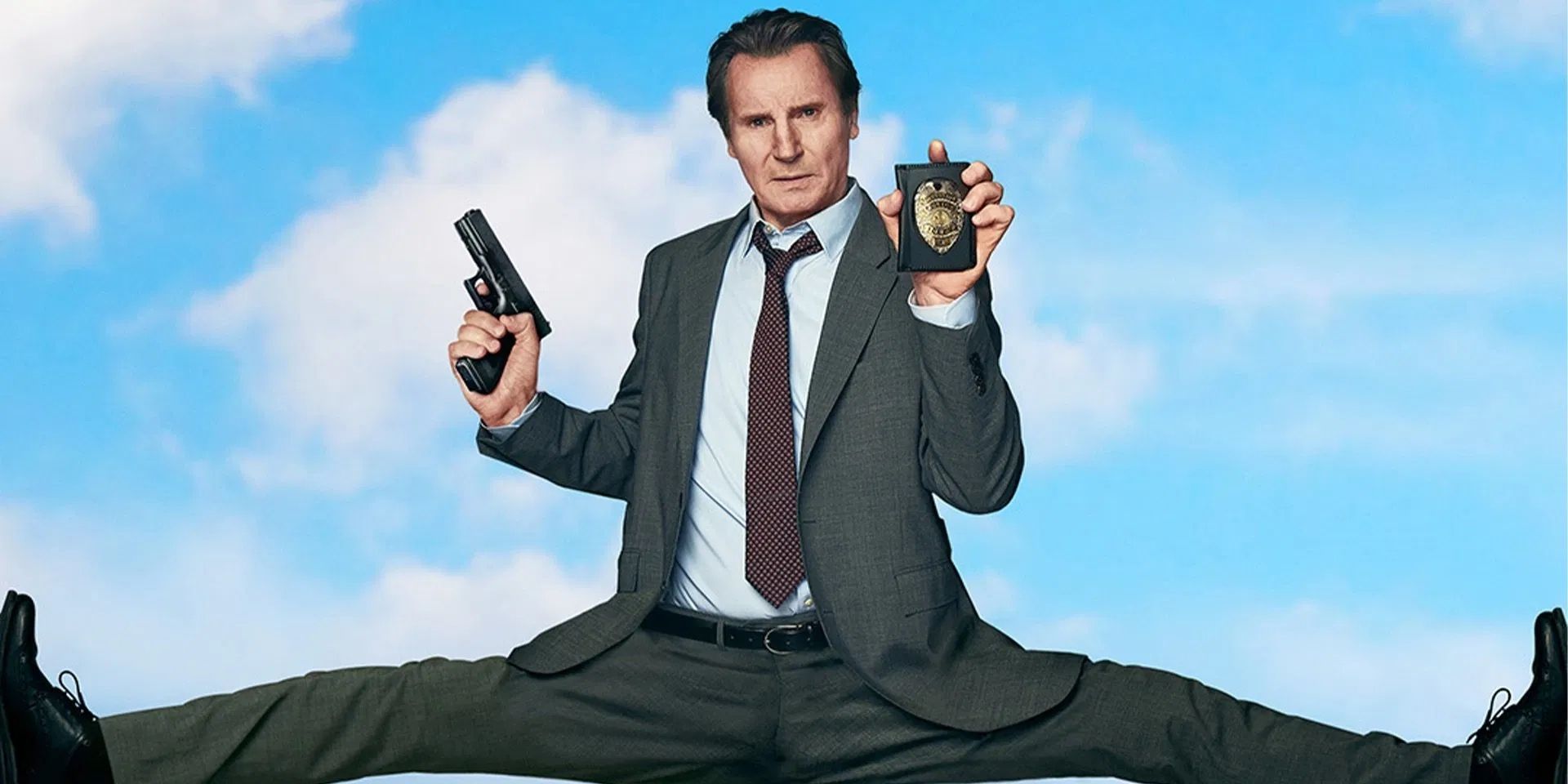
image via Paramount
Of all the unexpected casting choices of recent years, Liam Neeson stepping into Leslie Nielsen’s shoes for The Naked Gun reboot may have been the most shocking and brilliant. Initially teased as a joke, the idea of Neeson embracing full-on parody comedy quickly turned real when Paramount greenlit the film, with Neeson confirmed in the lead role as Frank Drebin Jr. The reboot isn’t just a remake, but a continuation of the original series, with Neeson playing the son of Nielsen’s legendary detective.
Directed by The Lonely Island’s Akiva Schaffer, who made other underrated comedies like Popstar: Never Stop Never Stopping and Chip ‘n Dale: Rescue Rangers, the film embraces the same style of absurdist, gag-a-minute comedy that defined the original Naked Gun trilogy. That brand of humor has been sorely missed in theaters.
For decades, Nielsen’s deadpan delivery paired with surreal sight gags made The Naked Gun a comedy benchmark. But Hollywood eventually moved away from this style, leaving it to fade into the background while raunchy comedies and mockumentaries took center stage. Now, with Neeson leaning into his gruff persona for laughs, not unlike how Leslie Nielsen transitioned from serious actor to comedy legend, the reboot is being welcomed with open arms. The decision to stick with classic physical comedy, visual gags, and one-liners is paying off, especially in a comedy landscape dominated by dialogue-heavy quips and snark. Fans online have responded just as strongly, with many calling it a “true return” to theatrical comedy form and praising Neeson for playing the part so earnestly.
That earnestness is key. What made The Naked Gun great wasn’t just the gags; it was Nielsen’s commitment to the bit. He never winked at the camera or broke character. Neeson brings that same straight-faced intensity, and it elevates every absurd line delivery. Combine that with a sharp script from Family Guy and American Dad creator Seth MacFarlane, who also produces, and the movie becomes more than just a reboot; it’s a revival of an entire subgenre. The positive reception to Neeson’s performance is helping shift industry perception, too, suggesting that slapstick and spoof comedy still have real box office potential.
Comedies Need to Come Back to Theaters
Audiences are Hungry For More Classic, Straight-Up Comedies
The return of Happy Gilmore and The Naked Gun is more than a double dose of nostalgia, but a wake-up call to Hollywood. For years, the narrative has been that comedies don’t make money in theaters anymore. But the truth is simpler and more frustrating: studios stopped giving comedies a real shot. Instead of bold, theatrical releases, they went the streaming route, where comedies were often buried under algorithmic recommendations or stripped of the theatrical energy they needed to truly land.
Now, with Happy Gilmore 2 and The Naked Gun reboot leading the charge, that era might finally be over. They’re opportunities to bring back the kind of crowd-pleasing, joke-packed entertainment that helped build the modern movie-going experience.
The buzz surrounding both films proves that people still want to go to the movies to laugh. Whether it’s Sandler smashing a golf ball at an obnoxious rival or Liam Neeson seriously mispronouncing a criminal’s name in a courtroom, comedy still works best when it’s experienced together. This could mark the beginning of a new comedy boom in theaters.
Just like horror had its resurgence with Get Out, Hereditary and Smile, comedies now have a chance to reclaim their place, not as disposable content, but as essential, theatrical experiences. Studios need to pay attention. The audience is here. The laughs are waiting. And the trend that’s been hiding in plain sight, the slow disappearance of theatrical comedy, is finally ending. It’s time for comedies to come back swinging, just like Happy Gilmore himself.
-
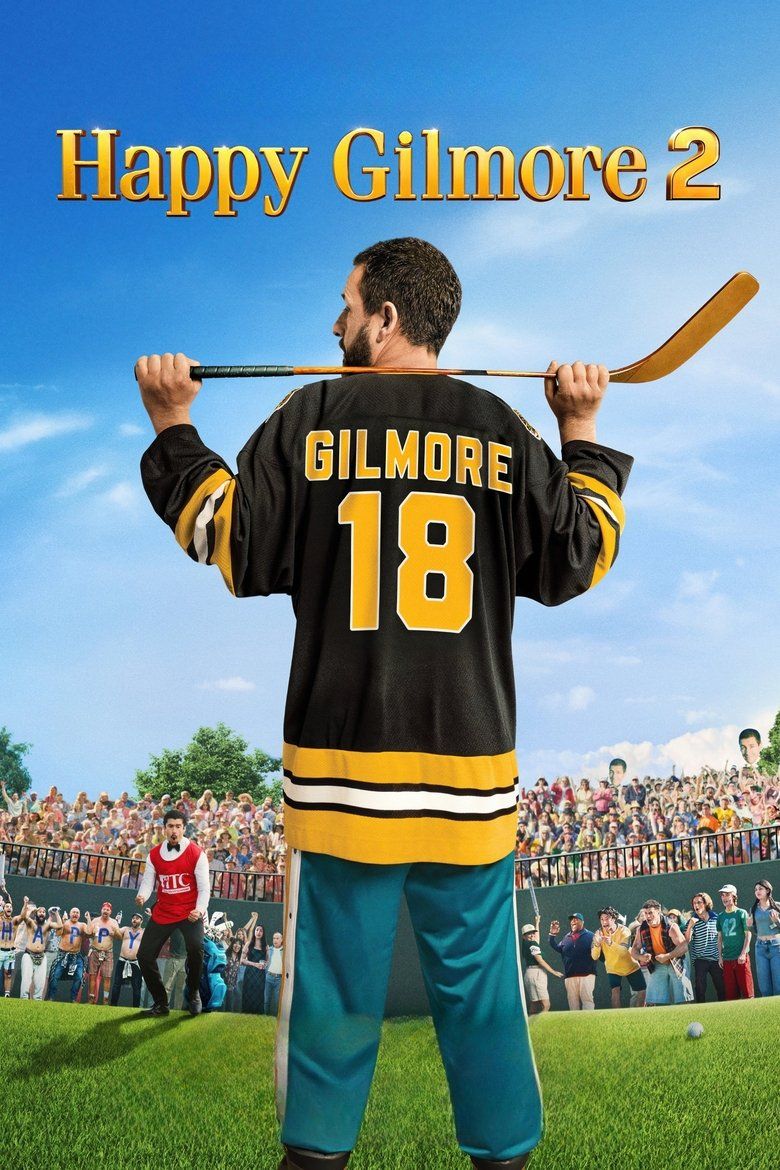
- Release Date
-
July 25, 2025
- Runtime
-
118 minutes
- Director
-
Kyle Newacheck
- Writers
-
Adam Sandler, Tim Herlihy
- Producers
-
Jack Giarraputo, Robert Simonds
-

Adam Sandler
Happy Gilmore
-

-
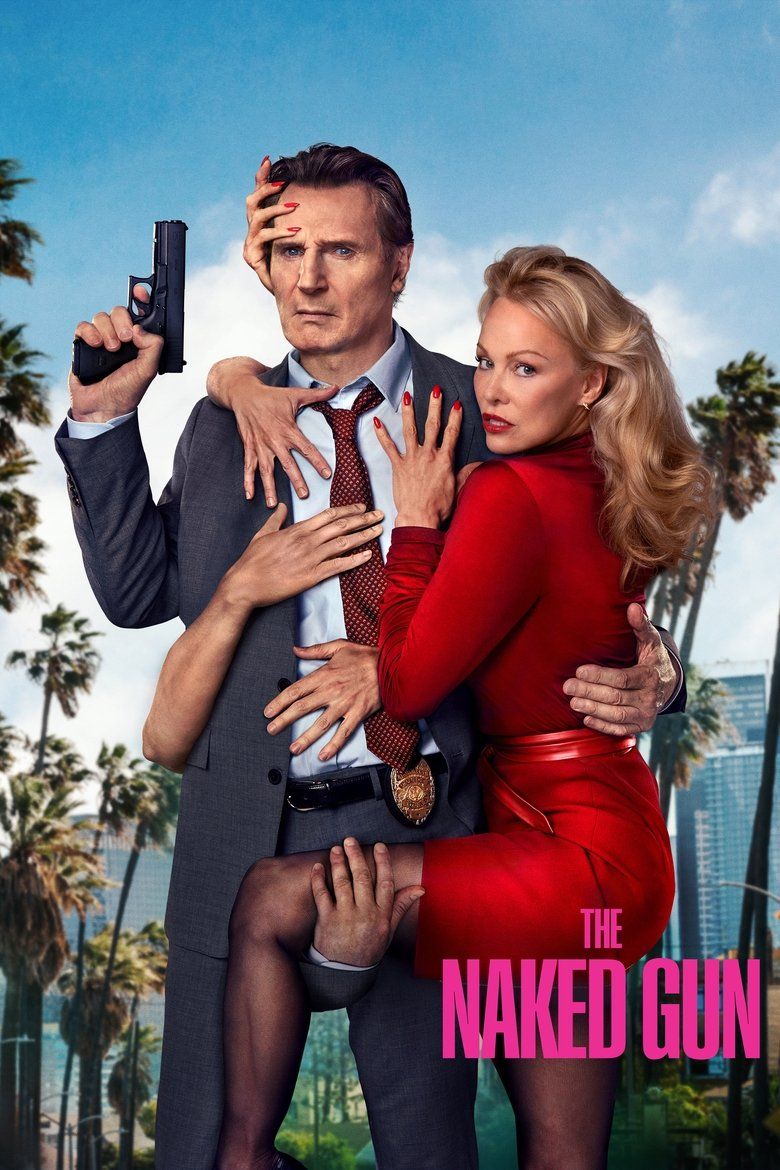
- Release Date
-
August 1, 2025
- Runtime
-
85 minutes
- Director
-
Akiva Schaffer
- Writers
-
Akiva Schaffer, Doug Mand, Dan Gregor, Jim Abrahams, David Zucker, Jerry Zucker
- Producers
-
Erica Huggins
-

Liam Neeson
Frank Drebin Jr.
-

Pamela Anderson
Beth Davenport
-
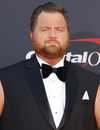
Paul Walter Hauser
Captain Ed Hocken Jr.
-
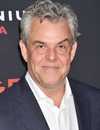
Danny Huston
Richard Cane
